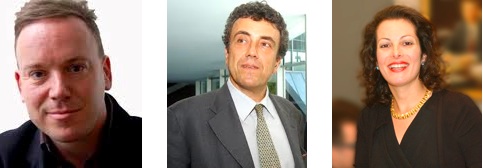
La settimana scorsa ho avuto una fortuna straordinaria: incontrare tre servitori dello Stato (anzi degli Stati, visto che parliamo di tre paesi diversi) dal profilo intellettuale molto alto. Ciascuno di loro è un punto di riferimento nel proprio campo.
Mercoledì ero con Geoff Mulgan, inglese, fondatore di Demos, CEO di Young Foundation, in procinto di andare a dirigere il prestigioso NESTA. Viene da studi di comunicazione. Nel Regno Unito è abbondantemente una star, avendo ricoperto incarichi di rilievo nel governo Blair); e mi pare che lo stia diventando anche nel resto d’Europa, perché la sua è una voce molto ascoltata a Bruxelles in tema di innovazione sociale proprio nel momento in cui l’Europa sta decidendo di investire sul tema. È impegnato nella progettazione della Big Society del primo ministro Cameron, modello controverso ma studiato con attenzione da tutto il continente – anche perché è l’unico che aggredisce esplicitamente il tema della difesa del welfare in un mondo finanziarizzato e globalizzato. .
La sera dello stesso giorno ho cenato con Fabrizio Barca, italiano, direttore generale del ministero dell’Economia e consigliere della Commissione Europea per la riforma della politica regionale. Viene da studi di economia. Negli anni Novanta dirige il servizio studi di Bankitalia: quando Carlo Azeglio Ciampi lascia la Banca per diventare ministro del Tesoro lo porta con sè. Insieme danno vita a una straordinaria avventura di institution building, reclutando un nucleo di tecnici di livello internazionale e mettendoli al lavoro sul tema dello sviluppo del Mezzogiorno. Il risultato è il Quadro Strategico Nazionale, il documento di policy più intelligente e nobile che abbia mai letto. Fabrizio ha una visione strategica molto ampia in cui integra di tutto, dalla letteratura scientifica ai rapporti governativi e alle discussioni con i leaders della società civile), ed è molto veloce nell’interazione (risponde alle mail in un minuto o due, e i suoi collaboratori raccontano che quasi nessuno riesce a stargli dietro). È un’autorità internazionale sul tema dello sviluppo.
Giovedì ho passato la giornata con Beth Noveck, americana, fondatrice di Peer to Patent, ex vice CTO alla Casa Bianca, in procinto di assumere un incarico nel governo britannico in tema Open Government. Viene da studi di diritto. Beth è quella che conosco meglio (ci scambiamo pareri da un anno, e ha collaborato al mio libro), ed è anche quella che sento più vicina come interessi: il suo campo è lo stesso in cui mi muovo io, la collaborazione tra governo e cittadini, di cui è un’esperta di classe mondiale. È l’unica dei tre ad essere soprattutto un’accademica.
La conclusione dei tre incontri è scontata, ma fa sempre bene ripeterla: ho ancora tanto, ma tanto, ma tanto da imparare. Imparerò.